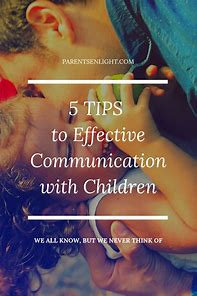Positive Parenting Techniques for Effective Communication with Children
Effective parenting is all about building a strong, nurturing relationship with your children. It’s a journey that involves setting boundaries, fostering emotional intelligence, and implementing various strategies to create a harmonious family environment. In this blog, we’ll explore the core principles of positive parenting and delve into the importance of effective communication, setting boundaries, and nurturing emotional intelligence in children.

The Essence of Positive Parenting
Positive parenting is not just a buzzword; it’s a way of raising children that focuses on empathy, respect, and open communication. It’s about encouraging children to develop into responsible and confident individuals. At its core, positive parenting promotes a healthy parent-child bond, setting the stage for a lifetime of mutual understanding and trust.
Effective Communication: The Key to Positive Parenting
Effective communication is the cornerstone of positive parenting. Listening actively and speaking with empathy lays the foundation for a strong parent-child relationship. When your children feel heard and understood, they are more likely to trust your guidance and open up about their thoughts and feelings.
Using age-appropriate language and engaging in two-way conversations is crucial. Encourage your children to express themselves, ask questions, and share their concerns. This fosters a sense of security and belonging, making them more receptive to your guidance.
Setting Healthy Boundaries
Setting boundaries is an essential part of positive parenting. It helps children understand the limits and expectations in your household, promoting discipline and responsibility. Boundaries should be established with love and consistency, and they should be age-appropriate.
For example, bedtime routines, screen time limits, and rules for homework can all be considered as boundaries. Consistency in enforcing these rules helps children develop a sense of security and predictability in their daily lives.
Nurturing Emotional Intelligence in Kids
Emotional intelligence (EI) plays a significant role in a child’s development. It helps them recognize, understand, and manage their own emotions, as well as understand the emotions of others. Parents can cultivate EI in their children through various means.
Model Emotional Intelligence: Children learn from observing their parents. Demonstrate how to handle emotions effectively and constructively.Teach Emotional Vocabulary: Help your children label and express their feelings accurately. This empowers them to communicate their emotions more effectively.Problem-Solving: Encourage children to find solutions to emotional challenges. When they face conflicts or emotional dilemmas, guide them in resolving these issues on their own.Empathy: Foster empathy by discussing other people’s feelings and experiences. This encourages children to be more understanding and compassionate.Positive Parenting Strategies
Now that we’ve discussed the importance of effective communication, setting boundaries, and nurturing emotional intelligence, let’s explore some positive parenting strategies that you can incorporate into your daily routine:
Stay Calm: It’s natural for parents to feel frustrated at times, but remaining calm and composed in front of your children sets a positive example.Offer Choices: Give your children choices within reasonable limits. This empowers them and helps them feel in control of their decisions.Praise and Encouragement: Acknowledge your child’s efforts and achievements. Positive reinforcement is more effective than criticism.Active Listening: Truly listen to your child’s concerns and feelings. Validate their emotions, even if you don’t agree with their perspective.Quality Time: Spend quality time with your children. Engage in activities they enjoy and create opportunities for bonding.
The Role of Parenting Bloggers
Parenting bloggers have become an invaluable resource for modern parents. They share personal experiences, advice, and tips that can guide you on your positive parenting journey. By following reputable parenting bloggers, you can gain insights, learn from their experiences, and stay updated on the latest parenting trends and research.
In conclusion, positive parenting is a holistic approach that emphasizes effective communication, setting boundaries, and nurturing emotional intelligence in children. It’s about creating a loving and supportive environment where your children can grow and flourish. By adopting these techniques and seeking guidance from parenting bloggers, you can foster a strong parent-child relationship and raise confident, well-adjusted individuals.
Whether you’re a new parent or have been on this journey for a while, remember that it’s okay to seek help and guidance along the way. Positive parenting is a continuous learning process, and with patience and dedication, you can create a harmonious and loving family environment for your children.



